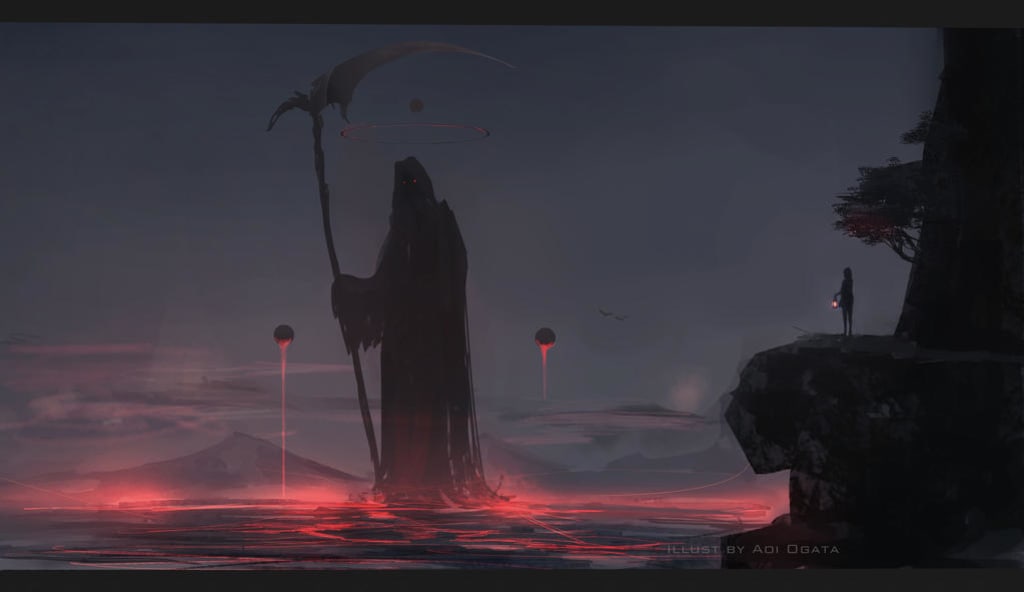The Politics of Death NecroPower
Mbembe and Modernity

Introduction
Mbembe in his book contends that we can go past the understanding of Foucault’s concept of Biopower (the power to life) by understanding the power of death (Necropower). Necropower does not go beyond Biopower per say but, completes it. Mbembe, allows us a glimpse into his understanding between the two creating a flexible and recursive understanding of how life and death are used to manipulate society.
BioPower and NecroPower
Biopower is the power to give life. It has the two poles of discipline and regulation which have led to increases in life expectancy, decreases in mortality rates, and improvements in the standards of living through medicine, statistics, and bureaucracy among others. Meaning that modern governments can decide who is being taken care of by the benevolent surveillance driven state. This requires a choice by the modern government to choose some populations to be given life while others are not. The choices of who get to live being based on the axis of value and utility. This idea of who is made to live and who is brought to death at the core of racism and discrimination. Those which are most valuable and made useful to modern governments through death are given death while those made most valuable and useful through life are given life. To those which are given life the aspect of death is then completely erased. For example, modern wars although being the deadliest of spontaneous human activities are only fought for the preservation of life rather than focusing on the action of war and killing. Narratives surrounding modern warfare are those of freedom and safety to citizens. But, Freedom and life for whom?
So we see that control in a modern state is maintained through an obedient population that is being properly instrumentalized through narratives of life. Death is then an unnecessary topic in obtaining power. Those moved into the realm of death become outside power relationships because modern power ignores death. It has already created a sufficient amount of life for those chosen to live to make death the ultimate taboo. Death becoming a private matter as it has no pathways to power in a modern democracy. It is what modernity wants to hide to showcase progress, regardless of continued ruination.
Mbembe introduces Necropolitics as the social and political power to direct who lives and who must die. Necropolitics completes Biopower by linking the subjection of life to the power of death. Biopower represents the view that sovereignty is marked by the ability to let live and make die. While, Necropower emphasizes the ability to make live and let die. “The ultimate expression of sovereignty residing in the power to dictate who may live and who must die” (Mbembe 11).
Wielding the sword, sovereigns coerce populations into obedience by instilling in them the fear of death. Because, if people do not fear death then what use is it to use death to frighten them? Contemporary governments keep populations from being too comfortable with death because when death is accepted and not feared then the power of life loses its edge. It cannot be used to create fear which controls the minds of people.
Modernity
Every generation is faced with the present and modern. There is no past or future which does not exist in the context of modernity. Making the daily thoughts of the living the most advanced version of humanity yet. The assumption being that they have learned from the past and are creating the future.
What is important is that the modern human is often conceptualized as behaviorally further and further away from the past but, how can that be true if every generation can claim modernity. Leaving one in a weird conundrum where humanity has always and will always be in a state of modernity even after it has passed. The concept of the modern human allows every generation to see itself as if on an infinite track to honing the human consciousness. What if the human condition has gone backwards or not significantly changed at all. How could we even measure such a thing? It is a question that is unlikely to be answered soon but, what is certain is that the idea of modernity, democracy, freedom, and peace are not new or radically progressive. We cannot rely on them to make better lives for humanity. Let alone let the concepts lead us blindly. To be modern is to be alive and active, not to be separate from the past. Probably another iteration of it.
Necropower identifies the smugness of modernity in ignoring the power of death. As though humanity has now found ways to achieve freedoms without unfreedoms. Similar to Eisenstein's E=MC2 maybe our political world cannot create freedom out of thin air. Making it only possible to share/interchange the freedom available. The idea that freedom (life and death) is bound to a reciprocal system moves us away from a faulty interpretation of freedom as being possible without an equal and opposite reaction. Unlimited freedom akin to turning coal into gold. Seductive, but so far proven objectively impossible. Those buying into the idea being purchasers of fools gold that distracts them from their poverty.
Conclusion
The power of death and the power of life being intertwined means death is powerful in the arena of subjugation both as the power to kill and as the power to let die. But, the subjugated can also wield the power of death being that the path toward death is the condition of all humanity. The freedom to live one’s life only made possible in the freedom to their own death. Suicide then through this perspective as Foucault suggested being an act of resistance, sovereignty, and power. Voluntary death can be part of a beautiful life. “For death is precisely that from and over which I have power” (Mbembe 91-2). Mbembe demonstrates that Biopower is insufficient to account for the modern day subjugation of life. Modern day governments deploy Necropower and Necropolitics in ways that destroy persons and create death worlds where large groups of people are subjected to living in conditions that do not allow them a life due to the fact that they are constantly marched toward death in a state of “living dead”. Identifying the power of death and why it has been hidden away allows us to see how modern forms of subjugation require the blissful ignorance of death.
Works Cited
Mbembe, Achille. 2019. Necropolitics. Theory in Forms. Durham, NC: Duke University Press.
About the Creator
Arjuna Fournier
Political Scientist writing research proposals, theory essays, and sometimes your random short story.






Comments
There are no comments for this story
Be the first to respond and start the conversation.